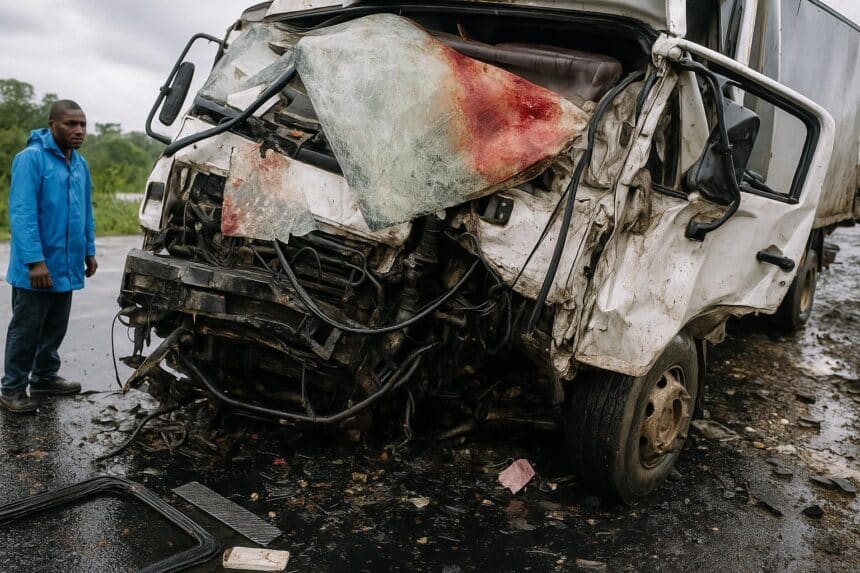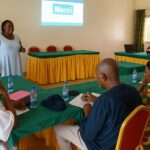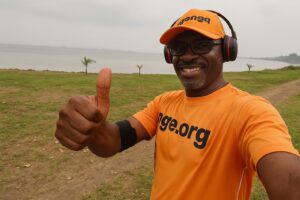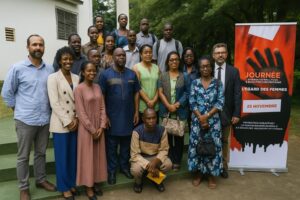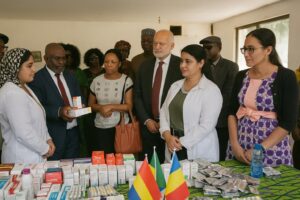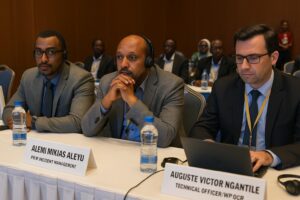Fatal slide near Ngamandzambala
The quiet of Sunday morning broke at first light when a Stelimac coach on the Brazzaville–Pointe-Noire line missed a curve outside Ngamandzambala and plunged into a roadside drain. Local officials confirm two fatalities on the spot and several passengers transported to the nearest health centre.
- Fatal slide near Ngamandzambala
- Survivors recall tense minutes
- A nation grappling with 12,564 crashes
- Speed, alcohol and ageing vehicles
- Government ramps up awareness
- Enforcement meets education
- Civil society demands deeper reform
- Stelimac promises internal review
- Infrastructure still catching up
- Families bear hidden costs
- Daily vigilance remains vital
- Technology offers hope
- Toward a culture of safer roads
Survivors recall tense minutes
“We heard a screech, then everything tilted,” recounts Michel, a mason returning to Pointe-Noire. Villagers rushed out with ropes and ladders, pulling people through broken windows while waiting for firefighters from Kinkala. First responders say the swift help limited the toll.
A nation grappling with 12,564 crashes
The Ministry of Transport’s latest review lists 12,564 road accidents nationwide between 2020 and 2024. Those collisions cost 1,040 lives and left 4,707 people with serious injuries. More than 4,300 others suffered minor wounds, underscoring the daily risk faced by commuters across the Republic of Congo.
Speed, alcohol and ageing vehicles
Officials link most crashes to excessive speed, drink-driving, lax respect for traffic rules and worn vehicles or road surfaces. The Ngamandzambala bend, narrow and uneven, illustrates the challenge: drivers often accelerate to regain lost time, turning a simple corner into a deadly trap.
Government ramps up awareness
Transport Minister Honoré Sayi reiterates that “seat belts, lower speeds and sobriety will save lives.” His department is airing radio spots in Lingala and Kituba, distributing reflective jackets to motor-taxi riders and deploying mobile patrols on national roads throughout the long weekend.
Enforcement meets education
Police checkpoints have multiplied on the RN1 corridor, combining document checks with quick breathalyser tests. At the same time, driving schools in Brazzaville now dedicate extra hours to defensive techniques. Instructors insist that theory alone is not enough—future motorists must internalise caution as a habit.
Civil society demands deeper reform
For the collective ‘Stop Accident’, the current model remains “palliative.” Spokesperson Clarisse Ngani advocates periodic technical inspections, heavier fines for overloaded buses and a public database tracking operator offences. She argues that transparency would pressure companies to maintain fleets and respect timetables.
Stelimac promises internal review
Contacted by phone, a Stelimac supervisor expresses sympathy to victims’ families and says the firm will “cooperate fully” with investigators. The driver, who survived, is undergoing medical tests and questioning. Management says all Brazzaville departures are paused for 24 hours while mechanics inspect vehicles.
Infrastructure still catching up
The Pool department, crossed by lush valleys, poses engineering challenges. Frequent rains erode shoulders, leaving deep gullies like the one that swallowed Sunday’s bus. Local engineers plan to widen the curve and add guardrails, but funding cycles often delay such projects.
Families bear hidden costs
Beyond grim numbers lie personal struggles. Rose, sister of one victim, worries about funeral expenses and caring for her niece who suffered a fractured leg. “We need transport, medicines, everything at once,” she says, grateful for the solidarity fund opened by neighbours.
Daily vigilance remains vital
Health workers at Talangaï hospital report that most crash survivors they treat were not wearing belts. Doctors urge passengers to speak up when drivers speed and to refuse rides in obviously defective vehicles—a small gesture that can tilt fate in their favour.
Technology offers hope
Several coach operators have begun fitting GPS trackers that buzz when speed exceeds 90 km/h. Although still rare, such devices alerted dispatchers to two over-speeding cases last month, allowing remote interventions. Authorities encourage firms to adopt similar tools, promising tax incentives.
Toward a culture of safer roads
Every statistic in the transport ministry’s ledger carries a face, a name, a family. Turning the tide, experts agree, will take consistent policing, smarter infrastructure and a communal mindset that prizes caution over haste. The Ngamandzambala tragedy is another painful reminder to keep pushing forward.

